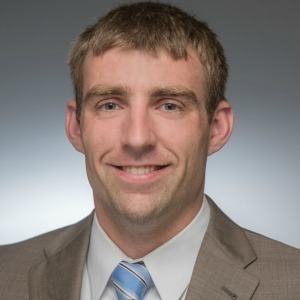Joel Boerckel

Adjunct Assistant Professor, Department of Aerospace and Mechanical Engineering, College of Engineering
Phone: 574-631-1866
Office: 142 Multidisciplinary Research Building
During development, our cells self-assemble to form microstructurally complex, multicellular tissues that possess critical biological and mechanical properties as well as remarkable potential for self-regeneration. However, these regenerative processes often are insufficient or break down, resulting in disease or debilitation after injury. The Tissue Engineering and Mechanobiology Lab at Notre Dame aims to understand and recapitulate these developmental mechanisms to repair and engineer new tissues. In particular, we are interested the roles of mechanical cues in driving cell and tissue development and regeneration, with a focus on bone and blood vessels.
Mechanical forces are critical in both embryonic tissue development and post-natal homeostasis and repair. These mechanical cues can be divided in two kinds: intrinsic (i.e., inherent properties of the tissue or extracellular matrix around the cells) and extrinsic (i.e., applied dynamic mechanical stimuli caused by external factors such as exercise or blood flow). Our laboratory is interested in identifying how cells integrate these diverse cues into biochemical responses, resulting in tissue-level changes in function. Our work ranges from fundamental mechanobiology (the study of how cells sense and respond to mechanical stimuli), to functional tissue engineering (the regeneration of biomechanically competent engineered tissues), and aims to regenerative strategies that build directly from insights in developmental mechanobiology.
To accomplish this, we use a combination of tools including engineering design, solid and fluid mechanics, genetics, molecular biology, biomaterials, and cell and animal models. We are a highly collaborative interdisciplinary research group and are always seeking motivated students from a variety of backgrounds to bring new perspectives to our research mission.
Would you like to support Prof. Boerckel's Research?